
Overview
The utilities industry ensures reliable services like electricity and water. GAO Tek offers conductivity testers, vital for efficient infrastructure management. The utilities industry encompasses the production, distribution, and management of essential services such as electricity, water, and natural gas. It plays a vital role in supporting modern society by ensuring the reliable and efficient provision of these critical services to residential, commercial, and industrial consumers. The sector involves a complex network of infrastructure, including power plants, water treatment facilities, and transmission systems. Utilities companies are often heavily regulated due to the essential nature of their services, and they continually strive to adopt innovative technologies and sustainable practices to meet growing demand, enhance operational efficiency, and address environmental concerns. The utilities industry is fundamental to the functioning of economies worldwide, providing the necessary foundation for various other sectors and contributing to overall societal well-being.
Depending on specific features and functions, GAO Tek’s conductivity testers are sometimes referred to as electrical testers, resistivity meters, conductivity probes, current detectors, impedance gauges, electrical conductivity sensors, circuit analysers, conductivity meters, ohmmeters, voltage testers, conductivity devices, current sensors, resistance gauges, impedance detectors, electric field meters, resistivity analysers, voltage probes, electrical probes, conductivity analysers, circuit meters, ohm detectors, resistance sensors, current meters, impedance sensors, electrical meters, electric probes, voltage detectors, resistivity sensors, and conductivity gauges.
Furthermore, GAO Tek’s conductivity testers are further grouped into: Benchtop, Calibrated, Salinity measurement, Temperature measurement, Resistivity measurement, TDS measurement, Handheld, High-accuracy, High-purity water, and Laboratory.
GAO Tek’s Conductivity testers have the following applications in the utilities industry:
- Water Quality Monitoring: GAO Tek’s conductivity testers are integral for assessing water quality by measuring the ability of water to conduct electrical currents. They detect changes in conductivity levels caused by dissolved salts, minerals, and contaminants, aiding in the identification of potential water quality issues in treatment facilities and distribution systems.
- Pipeline Integrity: In utility pipelines, GAO’s conductivity testers help ensure integrity by monitoring conductivity levels. They detect variations that may indicate corrosion, leaks, or breaches in pipeline infrastructure, enabling proactive maintenance and minimizing the risk of environmental contamination or service disruptions.
- Effluent Monitoring: GAO Tek’s conductivity testers are essential for monitoring effluent streams in wastewater treatment plants. By measuring conductivity levels, they assess the concentration of dissolved solids and contaminants in effluent, ensuring compliance with regulatory standards and facilitating effective treatment processes to safeguard environmental health.
- Boiler Water Control: GAO’s conductivity testers play a critical role in boiler water control within power plants. They continuously monitor the conductivity of boiler feedwater and steam to prevent corrosion, scale formation, and carryover. By maintaining optimal conductivity levels, these testers help preserve boiler efficiency, prevent equipment damage, and ensure safe and reliable power generation.
- Industrial Processes: GAO Tek’s conductivity testers are widely used in various industrial processes where water quality is paramount. They monitor conductivity levels in cooling systems, chemical manufacturing, food processing, and pharmaceutical production, ensuring product quality, process efficiency, and regulatory compliance. By providing real-time data on water conductivity, these testers enable timely adjustments and interventions to optimize process performance and minimize risks to product integrity and equipment longevity.
- Leak Detection: GAO’s conductivity testers are invaluable tools for detecting leaks in underground pipes within the utilities industry. By monitoring changes in conductivity along the pipeline network, these testers can pinpoint the location of leaks promptly, minimizing water loss, and preventing potential damage to infrastructure and the environment.
- Desalination Plants: In desalination facilities, GAO’s conductivity testers are essential for monitoring the salt concentration in water throughout the desalination process. By accurately measuring conductivity levels, these testers ensure the efficient removal of salts, allowing for the production of high-quality, potable water to meet growing demand in water-scarce regions.
- Cooling Tower Management: GAO Tek’s conductivity testers play a critical role in the management of cooling tower systems within utilities and industrial facilities. By continuously monitoring water quality and conductivity levels, these testers help prevent scaling, corrosion, and microbial growth, thus optimizing the performance and longevity of cooling systems while minimizing maintenance costs.
More information on conductivity testers and their applications in other industries can be found on
This category page lists related products
Systems in the Utilities Industry Utilizing Surface Roughness Gauges and Testers
Here are some popular systems in the utilities industry using conductivity testers:
Water Treatment Systems:
- Conductivity testers are integrated into water treatment plants to monitor the quality of raw water, assess treatment effectiveness, and ensure compliance with regulatory standards. SCADA (Supervisory Control and Data Acquisition) systems are commonly used to monitor and control water treatment processes, including conductivity measurement and data logging.
Distribution Network Monitoring:
- Conductivity testers are deployed throughout the water distribution network to detect leaks, assess water quality, and optimize distribution system performance. Geographic Information Systems (GIS) software is often used to map and analyze conductivity data along with other network parameters to identify areas of concern and prioritize maintenance and repairs.
Wastewater Treatment Systems:
- Conductivity testers play a crucial role in monitoring effluent quality, detecting pollutants, and ensuring compliance with discharge regulations. Wastewater management software solutions incorporate conductivity data along with other parameters to optimize treatment processes, track compliance, and generate regulatory reports.
Industrial Process Control:
- Conductivity testers are integrated into various industrial processes within the utility industry, such as chemical manufacturing, food processing, and pharmaceutical production, to monitor water quality and process efficiency. Process control software systems interface with conductivity testers to monitor and adjust process parameters in real time, ensuring product quality and operational efficiency.
Cooling Tower Management:
- Conductivity testers are used in cooling tower systems to monitor water quality, prevent scale formation, and minimize corrosion. Building management systems (BMS) or energy management systems (EMS) may incorporate conductivity data to optimize cooling tower operation and water treatment chemical dosing.
Boiler Water Control:
- Conductivity testers are essential for monitoring boiler water quality, preventing scale buildup, and minimizing corrosion in power generation facilities. Plant management systems (PMS) or asset management software may integrate conductivity data to schedule maintenance activities, optimize chemical treatments, and ensure boiler efficiency.
Environmental Monitoring Stations:
- Conductivity testers are deployed in environmental monitoring stations to assess water quality in rivers, lakes, and other natural water bodies. Environmental monitoring software platforms collect conductivity data alongside other environmental parameters to analyze trends, assess ecosystem health, and support decision-making for resource management and conservation efforts.
GAO Tek’s targeted markets are North America, particularly the U.S. and Canada.
Complying with Government Regulations
GAO Tek’s conductivity testers comply or help our customers comply with U.S. government regulations such as:
- Federal Power Act
- Public Utility Regulatory Policies Act
- Clean Water Act
- Safe Drinking Water Act
- Natural Gas Ac
- Clean Air Act
- National Environmental Policy Act
- Energy Policy Act
- Nuclear Regulatory Commission Regulations
- Occupational Safety and Health Administration Standards
GAO Tek’s conductivity testers comply or help our clients comply with Canadian regulations such as:
- National Energy Board Act
- Provincial Electricity Acts
- Canadian Environmental Protection Act
- Fisheries Act
- National Energy Board Act
- Provincial Regulations
- Canadian Environmental Protection Act
- Provincial Environmental Protection Acts
- Canadian Electrical Code
- Canadian Gas Association Codes
- Provincial Regulatory Agencies
- Energy Efficiency Act
- Accessibility for Ontarians with Disabilities Act
Case Studies of Conductivity Testers in the Utilities Industry
Conductivity testers are sometimes called electrical testers, resistivity meters, conductivity probes, current detectors, impedance gauges, electrical conductivity sensors, circuit analysers, conductivity meters, ohmmeters, voltage testers, conductivity devices, current sensors, resistance gauges, impedance detectors, electric field meters, resistivity analysers, voltage probes, electrical probes, conductivity analysers, circuit meters, ohm detectors, resistance sensors, current meters, impedance sensors, electrical meters, electric probes, voltage detectors, resistivity sensors, and conductivity gauges.
Here are some practical examples of using conductivity testers in the utilities industry:
New York City’s municipal treatment plants use conductivity testers to uphold water quality standards, crucial for public health and environmental preservation. These testers ensure compliance with rigorous regulations, detecting any deviations in water purity promptly.
In Boston, conductivity testers play a pivotal role in the city’s water distribution network by identifying leaks and optimizing maintenance efforts. This proactive approach minimizes water loss and infrastructure damage, ensuring reliable service delivery to residents and businesses.
New Jersey’s power plants rely on conductivity testers to regulate chemical dosing in cooling towers, preventing scale buildup and corrosion. By maintaining optimal water chemistry, these testers enhance equipment performance and longevity while reducing operational costs.
Illinois utilizes conductivity testers to monitor agricultural runoff, supporting water quality management efforts and preserving ecosystem balance in the region’s water bodies. These testers enable timely interventions to mitigate nutrient pollution and protect aquatic habitats.
Ohio’s water distribution systems employ conductivity testers to assess corrosion control measures, safeguarding infrastructure integrity and maintaining water quality standards. Regular monitoring ensures early detection of corrosion risks, prolonging the lifespan of critical assets and enhancing system reliability.
Indiana’s coal-fired power plants optimize boiler water treatment with conductivity testers, ensuring efficient heat transfer and minimizing energy losses. By precisely regulating water chemistry, these testers mitigate corrosion and scale formation, optimizing plant performance and reducing downtime.
Florida’s desalination plants utilize conductivity testers to monitor water quality throughout the purification process, ensuring compliance with stringent standards and providing a reliable source of freshwater. These testers enable continuous assessment of salinity levels, optimizing treatment efficiency and resource utilization.
Texas relies on conductivity testers in agricultural irrigation systems to maintain optimal water quality, promoting crop health and sustainable farming practices. These testers help farmers monitor soil salinity levels and adjust irrigation strategies accordingly, maximizing yields while conserving water resources.
Louisiana’s petrochemical refineries integrate conductivity testers into their cooling water systems to prevent equipment damage and maintain operational efficiency. By monitoring water chemistry parameters, these testers minimize corrosion and fouling, ensuring uninterrupted production processes and reducing maintenance costs.
California’s use of conductivity testers in river and stream monitoring programs helps assess water quality and detect pollution sources, supporting ecosystem health and recreational activities. These testers provide valuable data for informed decision-making and environmental management initiatives.
In Arizona, conductivity testers play a crucial role in optimizing water reuse systems, essential for sustainable water management in arid environments. By monitoring conductivity levels, these testers ensure water quality standards are met, supporting agricultural and urban water needs while conserving freshwater resources.
Nevada’s geothermal power generation facilities leverage conductivity testers to maintain optimal water chemistry levels in cooling systems, enhancing energy production efficiency and equipment reliability. These testers enable real-time monitoring and control, minimizing operational risks and maximizing power output.
Ontario’s freshwater ecosystems benefit from conductivity testers used to assess water quality and detect pollution sources, supporting biodiversity conservation efforts and public health protection.
Alberta’s oil sands tailings ponds employ conductivity testers to monitor water quality and prevent environmental contamination, ensuring compliance with regulatory standards and minimizing ecological impact.
Quebec’s hydroelectric power plants optimize boiler water treatment with conductivity testers, enhancing energy production efficiency and reducing environmental footprint. These testers enable precise control of water chemistry parameters, ensuring sustainable operation and resource utilization.
GAO RFID Inc. RFID Hardware, a sister company of GAO Tek Inc., is ranked as the top 10 RFID suppliers in the world. Its RFID, BLE, and IoT products have also been widely used in the utilities industry. Articles about related industries are given below:
Warehouse and storage industry
Use of Conductivity Testers with Leading Software and Cloud Services in the Utilities Industry
GAO Tek has used or has facilitated its customers to use GAO’s conductivity testers with some of the leading software and cloud services in their applications. Examples of such leading software and cloud services include:
- SCADA systems
- GIS software
- Wastewater management software solutions
- Process control software systems
- Building management systems
- Energy management systems
- Data analysis and visualization software
- Statistical analysis software
- Water quality analysis software
- Corrosion analysis software
- Chemical analysis software
- Predictive maintenance software
- Amazon Web Services
- Microsoft Azure for real-time data analytics
- Google Cloud Platform
- IBM Cloud
- Salesforce IoT Cloud
- Oracle Cloud
- SAP Cloud Platform
- Siemens MindSphere
- Amazon SageMaker
- Microsoft Azure Machine Learning
- Google Cloud AI Platform
- SAS Analytics Cloud
- Databricks
- Alteryx Analytics Hub
GAO Tek’s conductivity testers and their applications in other industries are listed on
Other related products can be found at this category page
Meeting Customers’ Demands
Large Choice of Products
In order to satisfy the diversified needs of their corporate customers, GAO Tek Inc. and its sister company GAO RFID Inc. together offer a wide choice of testing and measurement devices, network products, RFID, BLE, IoT, and drones.
Fast Delivery
To shorten the delivery to our customers, GAO has maintained a large stock of its products and is able to ship overnight within the continental U.S. and Canada from the nearest warehouse.
Local to Our Customers
We are located in both the U.S. and Canada. We travel to customers’ premises if necessary. Hence, we provide very strong local support to our customers in North America, particularly the U.S. and Canada.
Furthermore, we have built partnerships with some integrators, consulting firms, and other service providers in different cities to further strengthen our services. Here are some of the service providers in the utility Industry we have worked with to serve our joint customers:
- Accenture
- IBM Global Services
- Cognizant
- Deloitte
- Capgemini
- CGI
- Wipro
- HCL Technologies
- McKinsey & Company
- Bain & Company
- Boston Consulting Group (BCG)
- Booz Allen Hamilton
- KPMG
- PricewaterhouseCoopers (PwC)
- Ernst & Young (EY)
- Accenture Consulting
- CGI
- IBM Canada
- Accenture Canada
- Deloitte Canada
- Capgemini Canada
- Wipro Canada
- Cognizant Canada
- Fujitsu Canada
GAO has Many Customers in the Utilities Industry
The products from both GAO Tek Inc. and GAO RFID Inc. have been widely used in the utility industry by many customers, including some leading companies. Here is more information on applications of GAO RFID Inc.’s products in the utilities industry. Articles about related industries are given below:
Warehouse and storage industry
Here are some of GAO’s customers in the utilities industry:
- Consolidated Edison
- PSEG
- Eversource Energy
- Duke Energy
- Exelon Corporation
- Ameren Corporation
- Xcel Energy
- Southern Company
- Dominion Energy
- NextEra Energy
- Pacific Gas and Electric Company
- Southern California Edison
- Sempra Energy
- Puget Sound Energy
- Hydro-Québec
- BC Hydro
- TransAlta
- Enbridge Inc.
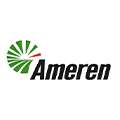
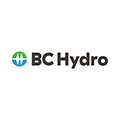
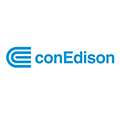
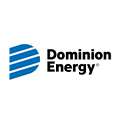
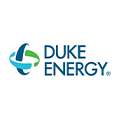
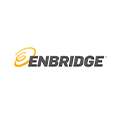
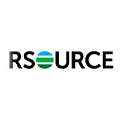
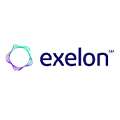
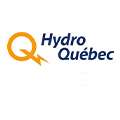
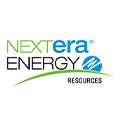
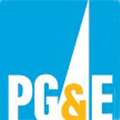
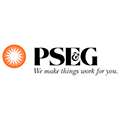
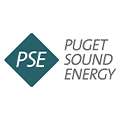
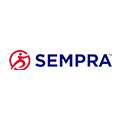
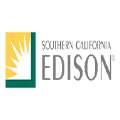


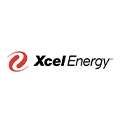
Contact Us
Again, here are GAO Tek’s Conductivity testers and they are further organized by feature: Benchtop, Calibrated, Salinity measurement, Temperature measurement, Lesistivity measurement, TDS measurement, Handheld, High-accuracy, High-purity water, and Laboratory.
We have Level 3 products in stock and can ship overnight to most parts of the U.S. and Canada. We provide 24/7 support. If you have any questions, our technical experts can help you.
Please fill out this form or email us.
